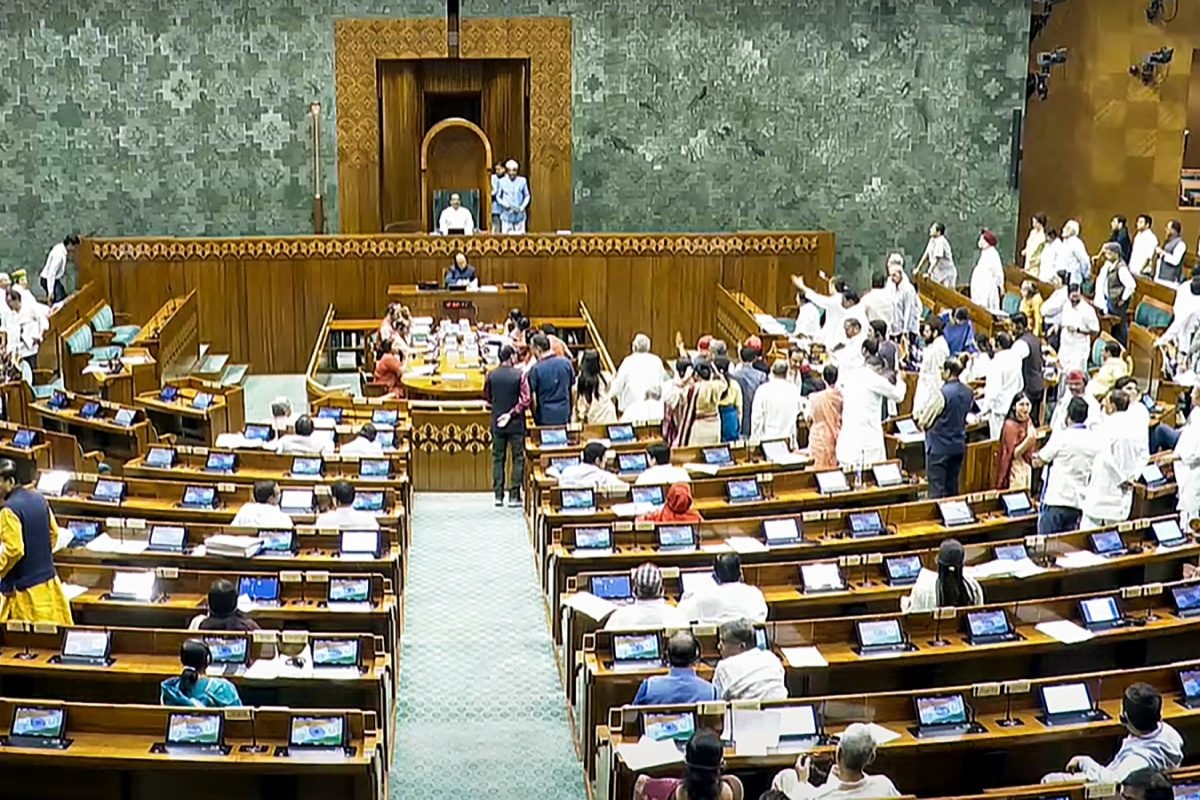

The Monsoon Session of Parliament in 2025 concluded amidst strong criticism from key leaders, including Lok Sabha Speaker Om Birla, Rajya Sabha Deputy Chairman Harivansh, and Union Minister Kiren Rijiju, who all expressed their dismay over the disruptions caused by the opposition. The session, which commenced on July 21, was marred by repeated adjournments, protests, and walkouts, significantly impeding parliamentary proceedings.
Speaker Om Birla, in a rare rebuke, voiced his concern over the "planned disruptions" that severely impacted the dignity of the Parliament. He pointed out that against a planned 120 hours, the Lok Sabha could only function effectively for 37 hours. Birla emphasized that the public expects serious debates and discussions on important issues and that continuous disruptions undermine the decorum of the House. He urged the members to introspect on their conduct, reminding them that the nation is watching. He also noted that sloganeering, displaying placards, and creating deadlocks were not in accordance with parliamentary traditions.
Rajya Sabha Deputy Chairman Harivansh echoed similar sentiments, expressing regret that repeated disruptions deprived the House of meaningful discussions on matters of public importance. He highlighted that the Rajya Sabha lost 51.5 hours due to the opposition's demands for a discussion on the Special Intensive Revision (SIR) of electoral rolls in Bihar. Harivansh noted that the House functioned for only 41 hours and 15 minutes, resulting in a disappointing productivity of 38.8%. He lamented that out of the opportunities to raise 285 questions, zero-hour submissions, and special mentions, only a fraction could be taken up.
Union Minister of Parliamentary Affairs Kiren Rijiju also slammed the opposition for their "obstinate behavior," stating that they missed participating in discussions on several important bills that were passed. He argued that frequent disruptions ultimately hurt the opposition more, as they lose crucial opportunities to hold the government accountable. Rijiju criticized the INDIA bloc for disrupting Parliament, asserting that while protests are a valid right, they should not impede the ability of other MPs to raise important issues. He affirmed the government's commitment to its legislative agenda and vowed to pass key bills despite the disruptions.
The primary cause of the disruptions was the opposition's demand for a discussion on the Special Intensive Revision (SIR) of electoral rolls in Bihar. The opposition parties alleged that the SIR exercise was being used to manipulate voter rolls and influence election outcomes. However, the government maintained that the issue was sub-judice and that discussing the administrative work of the Election Commission, an autonomous body, was not permissible.
Despite the disruptions, the Monsoon Session saw the passage of several important bills. The Lok Sabha passed 12 bills, including the National Sports Governance Bill, the Promotion and Regulation of Online Gaming Bill, and amendments to the Income-tax and Taxation Laws. The Rajya Sabha cleared 15 bills, including those related to maritime activities and goods and services tax. Additionally, three amendment bills related to the removal of elected representatives facing serious criminal charges were referred to a Joint Parliamentary Committee.
The session also included discussions on Operation Sindoor, India's military response to the Pahalgam terror attack, and a special discussion to honor India's first astronaut, Group Captain Shubhanshu Shukla.